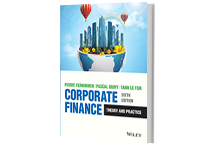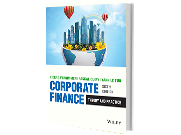Comment, question or quotation of the day
13-12-2025 : The Bitcoin Society (TBSO) IPO, episode 2
Last week, we saw how the practical arrangements for The Bitcoin Society's (TBSO) backdoor IPO, through the acquisition of an already listed shell company, reduced by 95% of its cash and transformed into a limited partnership, were at odds with the project of societal change championed by its founders.
The founders explain that Bitcoin has an advantage over traditional currencies (the euro, the dollar, etc.), namely its limited quantity (21 millions) and the fact that its issuance is independent of governments, protecting its holders against inflation.
The fact that the quantity of bitcoins is ultimately limited to 21 million is not in itself sufficient to protect its holders against inflation, and may expose them to a more serious and pernicious risk, namely deflation.
In a world that has become Bitcoin-based, where the number of bitcoins is fixed indefinitely at 21 millions, the unit price of goods and services, which are increasing in number, will necessarily decrease since they are denominated in a limited number of monetary units that will sooner or later reach their limit of 21 millions of bitcoins. This would be deflation, which historically has rarely ended well. It would be a return to Spain at the turn of the 17th century, when economic activity contracted every time the galleons laden with South American gold and silver failed to arrive in Seville due to pirates or the depletion of mines.
The indefinitely fixed nature of the number of bitcoins does not rule out the risk of inflation if bitcoin were to one day replace current currencies. Indeed, inflation no longer arises, with a few exceptions, from an increase in the amount of physical currency issued, such as assignats during the French Revolution, but from external shocks (energy prices) or excessive growth in bank credit. In the eurozone, for example, the money supply in the sense of M3 is nearly 11 times greater than the amount of coins and banknotes in circulation (€1.6 trillion). In a world that has gone Bitcoin, Bitcoin deposits with banks would still feed Bitcoin loans, the runaway growth of which could still fuel inflation. M3 would not be equal to 21 million BTC.
Buying a fraction of a bitcoin, like my nephews do, means buying a piece of a dream, paying to scare yourself, and starting your financial education by learning first-hand what volatility and loss are. Buying larges amounts of cryptocurrencies, either directly or via TBSO, is as productive for the European economy as buying tulip bulbs from Constantinople in Amsterdam in 1636 in the hope that they would produce black tulips.
It means sterilising savings that could have a social purpose other than supporting bitcoin miners in the United States, China or Russia, or taking the risk of becoming a counterparty to drug traffickers or traffickers of all kinds. Are there not enough opportunities for profitable investments in Europe?
11-12-2025 : The Bitcoin Society (TBSO) IPO, episode 1
TBSO is a project led by Éric Larchevêque, a renowned entrepreneur (co-founder of the unicorn Ledger), with the aim of acquiring bitcoins, offering freely accessible resources on finance and entrepreneurship, and developing a community with paid services around these themes.
Rather than choosing the traditional route to go public, TBSO first identified a listed company (Tayninh), a 98% subsidiary of Unibail Rodamco Westfield, with €18.5 million in cash financed by €18.5 million in equity.
• Before acquiring Tayninh, the founders of TBSO obtained Tayninh to pay a €18 million dividend distribution, reducing Tayninh's intrinsic value to €0.5 million.
• A takeover bid at €1 million will then be launched. This resulted in a €0.5 million premium representing the price of the shell company, which made it possible to avoid the long and uncertain process of a traditional IPO.
• Tayninh will rename itself TBSO, adopt the status of a limited partnership with share capital, and raise funds to acquire bitcoins and develop its new activities.
Three comments on the structural choices made in this project:
1/ The terms chosen for the IPO contrast sharply with the grandiose nature of the project ("the first listed company in the world to offer a Network Society coupled with a Bitcoin Treasury Company"). Going public through the back door, as TBSO has done, allows the company to circumvent the requirement to publish three years of audited accounts in order to go public through the traditional route, and avoids being subject to in-depth scrutiny by the market authorities.
2/ While the project is presented as a societal change, the second decision is to reduce the size of the shell company purchased by 95%, as if the founders of TBSO did not have the financial means to invest more than €1 million (including the cost of a highly polished communication campaign). As if TBSO were not going to raise funds afterwards. The magazine Challenge estimates Éric Larchevêque's fortune at €340 million; that of Tony Parker, another founder, is estimated at €200 million.
3/ While É. Larchevêque's presentation of the project is an ode to freedom, the third decision is to abolish the usual rule of one share = one vote, in order to establish a limited partnership with shares that will give full powers to the founders and none to investors who become TBSO shareholders. This is a third negative signal. Indeed, if TBSO's market value were to fall below its net asset value on a sustained basis, then the pullback effect of a takeover bid would not be able to function. The absence of this potential constraint is the best guarantee of trading at a discount in a controversial sector.
The last three companies to go public this way in 2020-21:
• Two experienced volatile share prices in the first few months before stabilising around their IPO price.
• The third is in receivership.


Glossary
The Vernimmen.com glossary provides definitions for a couple of thousands of financial, stock market or economic terms.
This financial dictionary allows beginners to progress in their learning of finance and to experts to cease the precise meaning of a sentence.

Quiz
The Vernimmen.com Quiz offers over 300 questions with answers to progress in your understanding of finance and to test your knowledge.
Questions are sorted by key topics (financial analysis, investment and stock markets, value, financial engineering and financial management).

Survey
We frequently ask our readers to give us their point of view on a specific topic.
You will find here the current survey with the to-date status of answers as well as past polls.

Financial data
Thanks to our partner Infinancial, we can offer on this page financial data on over 16 000 groups around the world.
Updated several times a year, this database offers information sometimes hard to find elsewhere (beta, …)
The Vernimmen.com Letter
Number 169 of December 2025
News : Capital increases without preferential subscription rights of listed companies carried out by ABB
Statistics : Securitisation in Europe and the US
Research : Payment terms, predictive signals of stock market returns
Q&A : What is a coop agreement?
COMMENTS : Comments posted on Facebook



